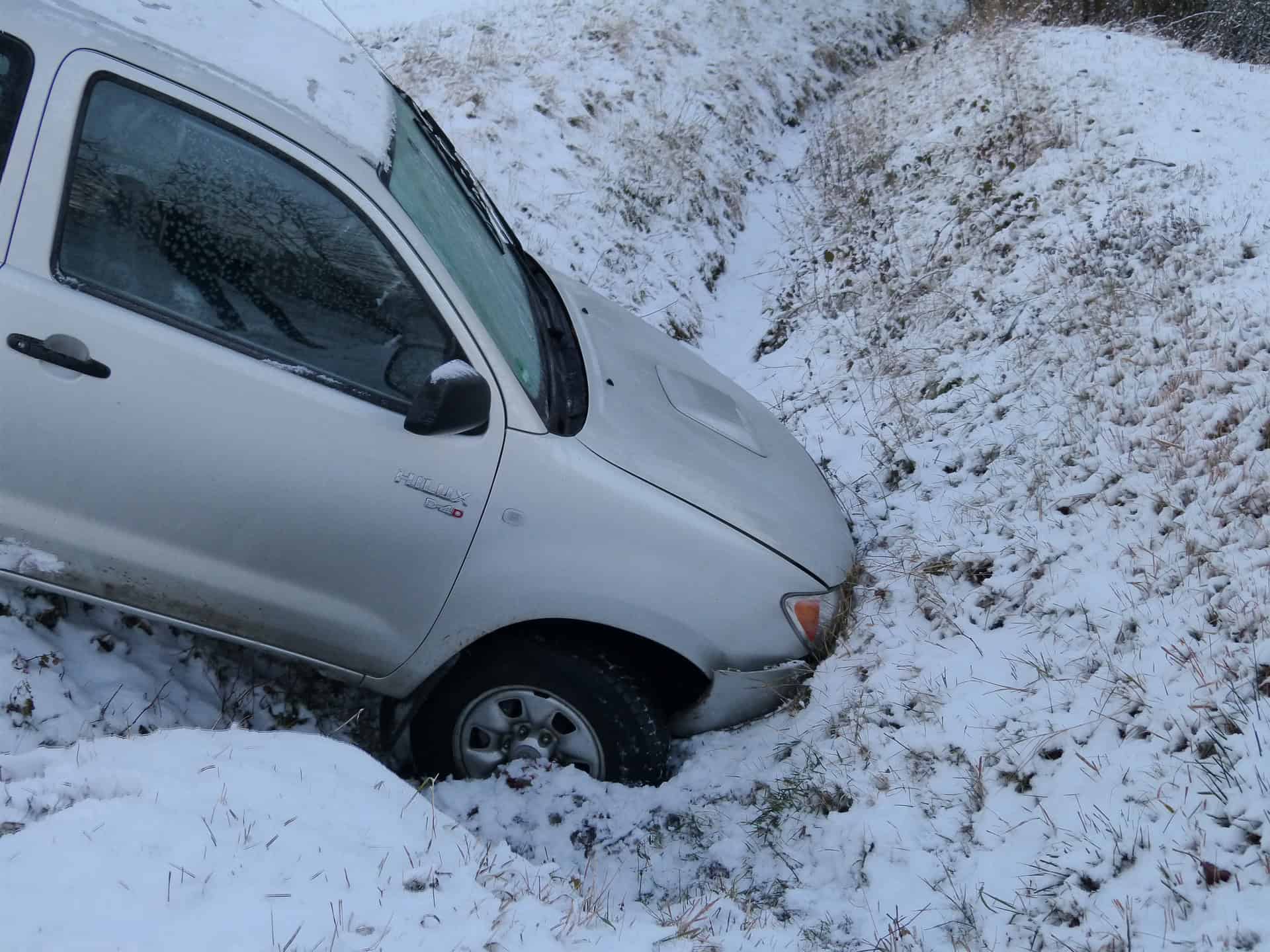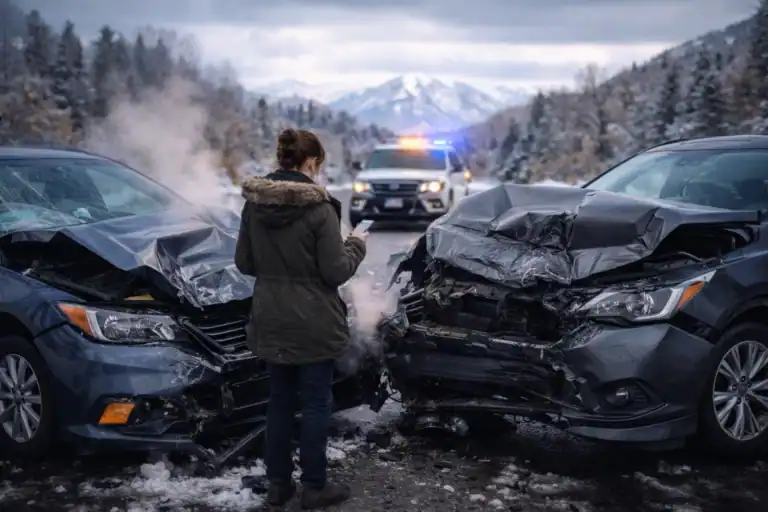How Does Colorado Handle Out-of-State Car Accident Claims?

Being involved in a car accident is challenging enough, but when it happens out-of-state, it adds an extra layer of complexity. For Colorado residents who experience an accident while traveling outside the state, understanding the claim process is essential to safeguard your interests. This guide explains how Colorado approaches out-of-state car accident claims, what steps you should take, and how to protect yourself when navigating this potentially stressful situation.
What Happens If You’re in an Out-of-State Car Accident?
1. Jurisdiction and Applicable Laws
When an accident occurs in another state, that state’s laws and regulations typically govern the incident. For example, if you’re driving through Utah or Nebraska and are involved in an accident, you’ll need to follow their specific traffic laws and insurance procedures. It’s essential to understand that while Colorado’s no-fault insurance system does not apply, your own insurance coverage still plays a significant role.
2. Coverage from Your Colorado Insurance Policy
Most Colorado auto insurance policies extend coverage even if you’re driving in another state. This means that your liability, comprehensive, collision, and medical payment (MedPay) coverages will often apply. However, the specific terms of your policy will dictate how claims are handled, so it’s wise to review your insurance details before embarking on a trip, whether you’re heading to Broomfield for a local drive or out to another state.
Immediate Steps to Take After an Out-of-State Accident
1. Prioritize Safety and Emergency Response
Ensure that all parties are safe and call 911 to report the accident, regardless of where it happened. Emergency response protocols can vary significantly between states, so cooperating with local law enforcement and first responders is crucial.
2. Gather Essential Information
Document as much information as possible, including:
- Names and contact details of all drivers involved
- Insurance details for each vehicle
- License plate numbers and vehicle descriptions
- Photos of the accident scene and damage
- Contact information for any witnesses
This information can be invaluable when filing your claim back in Colorado and dealing with insurance companies.
Navigating Insurance Claims Across State Lines
1. Reporting the Accident to Your Insurance
As soon as you’re able, contact your insurance company to report the incident. Explain that the accident occurred out of state and provide all the documentation you collected at the scene. Most major insurers, especially those serving residents in areas like Commerce City and Aurora, have systems in place to handle interstate claims.
2. Coordinating with Local Laws and Insurance Providers
Your insurance provider will likely coordinate with local authorities and other insurance companies involved. Because laws and minimum insurance requirements differ between states, your insurer may need to adapt its approach to meet those regulations. For instance, liability limits in neighboring states like Wyoming or Kansas might differ from Colorado’s requirements, impacting how claims are evaluated and processed.
Common Challenges and How to Overcome Them
1. Understanding the Laws in the State of the Accident
Different states have varying rules about fault and how insurance claims are settled. For example, some states have no-fault insurance systems, meaning each driver’s insurance covers their own damages regardless of who caused the accident. Knowing these distinctions can help you set realistic expectations for your claim.
2. Potential Delays in the Claim Process
Handling an accident across state lines can result in slower processing times. Communication between insurance companies, different legal systems, and various local practices can contribute to delays. Working with an experienced attorney familiar with multi-state claims, such as those at flanagan.law, can streamline the process and help you navigate these challenges efficiently.
Case Example: A Cautionary Tale
Consider a Colorado resident who was involved in an accident while visiting Westminster, California. Though they had ample insurance coverage, they were unprepared for the differences in state procedures. The accident involved navigating the nuances of California’s insurance laws, which required additional coordination between their Colorado-based provider and local authorities. By working with an attorney and understanding their rights under both Colorado and California law, they successfully managed their claim without unnecessary financial or legal stress.
How to Prepare for Out-of-State Travel
1. Review Your Insurance Policy
Before traveling, review your policy details to understand what coverage applies when you’re outside Colorado. Ensure that liability limits and any supplemental coverage, like MedPay, extend to out-of-state incidents.
2. Keep a Record of Emergency Contacts
Keep a list of emergency contact numbers, including your insurance company’s claim hotline and local emergency services. Having this readily available can expedite the claim process and reduce stress during a critical moment.
3. Consider Additional Coverage Options
For those who travel frequently, investing in additional coverage such as uninsured/underinsured motorist (UM/UIM) protection can provide extra peace of mind. This coverage is particularly useful if you’re in an accident in a state where insurance requirements are lower than Colorado’s.
Conclusion
Handling an out-of-state car accident claim can be complex, but with the right preparation and knowledge, you can navigate the process confidently. Understanding how Colorado insurance policies work outside state lines, knowing what steps to take immediately after an accident, and being aware of the potential challenges will help you protect your rights and interests. For personalized assistance, working with a knowledgeable attorney can make all the difference.
FAQ
1. Does my Colorado insurance cover me in other states?
Yes, most Colorado insurance policies provide coverage across state lines. However, the extent of coverage may vary, so it’s best to review your policy details.
2. What happens if the accident laws are different in another state?
You must follow the laws of the state where the accident occurred. Your insurance company will help coordinate the claim according to those rules.
3. Will my premiums increase after an out-of-state accident?
This depends on your insurance provider and the details of the accident. Consulting with your agent can provide clarity.
4. Should I hire an attorney for an out-of-state accident?
Hiring an attorney, especially one experienced with interstate claims, can be beneficial for protecting your rights and navigating complex legal differences.
5. How long do I have to report an out-of-state accident?
Report the accident as soon as possible to your insurance company. Specific reporting timelines vary by policy and state, so prompt action is advisable.






